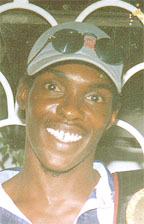`Charges appropriate to the severity of the crime should be laid promptly, if only to quell the rapid disintegration of official credibility on these issues’
The Guyana Human Rights Association (GHRA) is calling for an impartial and vigorous investigation into the death of prisoner Edwin Niles and for the matter not to be treated as exempt from the normal processes of the law because the disciplined services are involved.

Further, the association said it is difficult for it to reconcile this event with the normal prison culture and to this end noted that despite criticisms levelled at prevailing conditions in the main prisons over time the Guyana Prison Service (GPS) has taken systematic steps to incorporate human rights training and enlightened programmes into the prison regime. The GHRA said these efforts have been constantly undermined by overcrowding combined with staff shortages, issues over which it says, the GPS exercises no control. “Efforts by the judiciary to address overcrowding through more flexible bail policies have been rebuffed and ridiculed by short-sighted ministers and other government agencies,” the statement said.
However, the GHRA said that stressful conditions under which the understaffed prison services operate “should, in no way, be used to rationalize the horror of Niles’ death.” It said in trying to understand the sudden descent by members of the GPS into extreme brutality one must also take into account the early involvement of the GDF in the incident. The concept of “Joint Services”, the release said appears in practice to facilitate the transmission of the torture virus and culture from the GDF to the other disciplined services. The GHRA said the increased savagery of criminal violence in recent times is provoking similar savagery in the response of the disciplined services and in this respect “the criminals and the disciplined services appear to feed off each other.”
Further, the GHRA noted that while attention is being directed at the circumstances surrounding the man’s death, there is complete silence regarding how he may have come into possession of ammunition while labouring at base Camp Ayanganna. The army has reportedly launched its own investigations into how the ammunition was taken from its base.
Niles had reportedly taken a pair of pants from a room he was cleaning at Camp Ayanganna and was caught with the ammunition in its pockets during a routine check upon return to the prison. He was interrogated, during which time he was allegedly beaten and burnt and later put into the hands of the police, then taken to the Georgetown hospital. The man succumbed to his injuries nine days later and a post-mortem examination revealed that he died of blood clots in the lungs due to burns about the back. He also suffered a fractured left arm.
`Charges appropriate to the severity of the crime should be laid promptly, if only to quell the rapid disintegration of official credibility on these issues’





